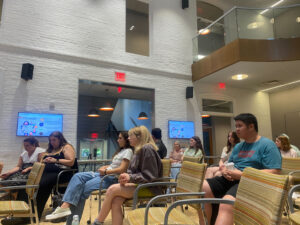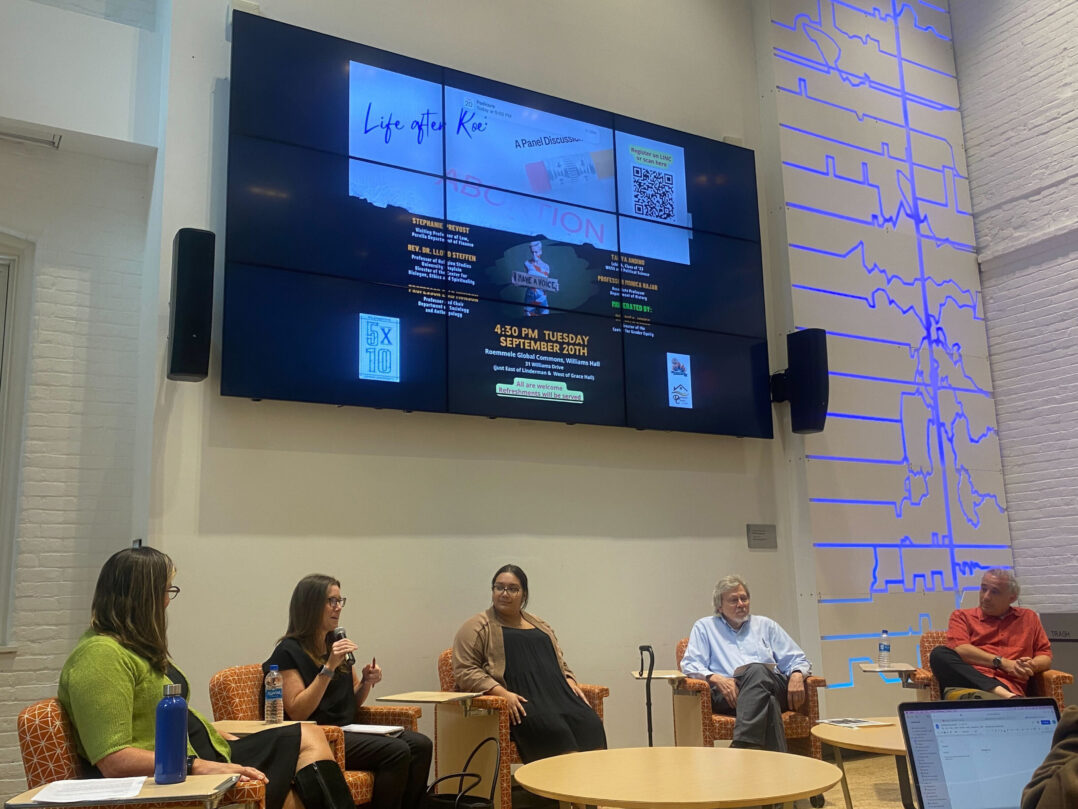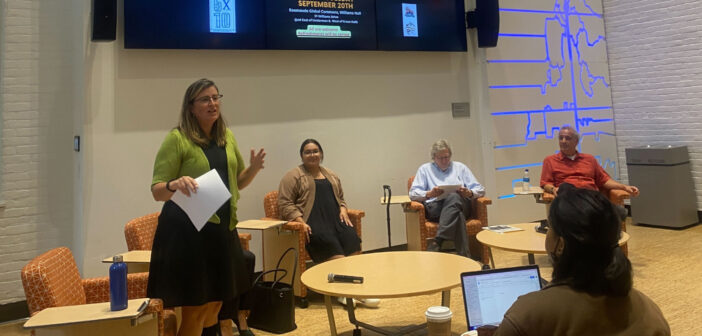Lehigh professors emphasized the importance of understanding the implications of overturning Roe v. Wade during a panel discussion titled “Life after Roe.”
The panel, which took place in Williams Hall on Sept. 20, was composed of four university professors: Stephanie Prevost, visiting professor of law; Lloyd Steffen, professor of religion studies; Ziad Munson, professor and chair of the department of sociology and anthropology; and Monica Najar, associate professor of history.
“I’m here to discuss the real world implications for you as students entering the workforce,” Prevost said. “The shifting of abortion policy over to the states will have implications for you all depending on where you end up working.”
The panel also featured Tanya Andino, ‘23, who is majoring in women’s, gender and sexuality studies and political science.
To facilitate the discussion, panel members called on students to ask questions. The most popular type of questions regarded the specific changes that the Dobbs v. Jackson Women’s Health Organization decision will bring.
Steffen said the 14th amendment has historically been used to expand liberties including same-sex marriage, abortion and contraceptive use.
“Since the time of the Civil War, we have been expanding liberty in the United States,” Steffen said. “Dobbs is the first time we’ve done a retreat on that expansion of liberty.”
The panel explained the Dobbs v. Jackson Women’s Health Organization decision opens the door for other rights — that were established in court using the 14th amendment — to be overturned.
Along with understanding the new law, Najar also brought attention to the concept of reproductive justice, which she defined as the idea of centering marginalized women in conversations about reproduction.

A panel discussion titled “Life after Roe” took place on Sept. 20 in Williams Hall where Lehigh professors discussed the importance of the overturning of Roe v. Wade. The panel was composed of four professors and one student. (Julia Contino/B&W staff)
Andino said the Dobbs ruling will reveal new challenges to achieving reproductive justice, as the restrictions are bound to disproportionately impact minority and marginalized women.
“It’s an intersectional approach to the idea of abortion,” Andino said. “Reproductive rights have a history of racism in a sense that there has always been a threat to women of color and their reproductive autonomy.”
Another central question asked what concerned students can do about the overturning of Roe v. Wade.
Panelists suggested voting in the upcoming elections and being conscious about promoting reproductive justice.
Andino said students can do this by having difficult conversations with people who have differing viewpoints and being empathetic to other people and how their experiences have shaped their perspective.
Najar urged students to share their viewpoints on abortion in efforts to create a more open discussion about sexuality and bodily autonomy.
She said using this tactic with the same sex marriage movement created a generation of people who brought change.
“That kind of success comes from people saying, ‘I have sex. I have a right to have sex. It doesn’t make me promiscuous. It doesn’t make me dirty. I have the right over my body, and that means I need access to all kinds of health care,’” Najar said.
Alex Tang, ‘25, said he felt more solidified in his stance on abortion.
“If you weren’t someone that was familiar with this issue, there was a lot to take away from this discussion,” Tang said. “If you were familiar, they went beyond the broad scope and talked about the history of abortion and the implications of this new decision.”

A panel discussion titled “Life after Roe” took place on Sept. 20 in Williams Hall where Lehigh professors discussed the importance of the overturning of Roe v. Wade. The panel was composed of four professors and one student. (Julia Contino/B&W staff)
The panel professors said having discussions like this with students is essential to eliciting change, because students are the next generation of leaders.
“I think that, as we model what a good civic and civil society looks like, we are up to the task of talking about things that matter so very much,” Najar said.






Comment policy
Comments posted to The Brown and White website are reviewed by a moderator before being approved. Incendiary speech or harassing language, including comments targeted at individuals, may be deemed unacceptable and not published. Spam and other soliciting will also be declined.
The Brown and White also reserves the right to not publish entirely anonymous comments.
1 Comment
Professor Steffen wrote the book on abortion. I wonder if any of his ideas from the book were put forward in this seemingly one sided panel. According to this article the discussion should have been named: Life after Roe for those who mourn Its demise.
“Since the time of the Civil War, we have been expanding liberty in the United States,” Steffen said. “Dobbs is the first time we’ve done a retreat on that expansion of liberty.” Could this be considered a removal of license?
I would like to read about a Lehigh University panel on “Fetal Justice”